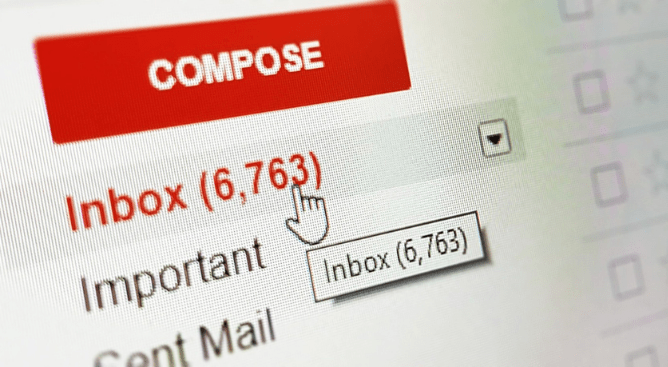In a series of 3 blogs, we look specifically at flexible working, its pros and cons and whether (with so many companies looking to adopt a flexible working policy) it will ultimately resolve or contribute to the phenomenon of job burnout. In this, our first blog, we're going to discuss what role the pandemic has had in increasing work related stress and potential burnout.
In a previous blog, we reported on the Health and Safety Executive's (HSE) annual report citing that in 2019/2020 it was estimated that 828,000 workers suffered from work related stress resulting in around 17.9 million working days lost. In OC Tanner's 2021 Global Culture Report, it's estimated that employee burnout has increased by 15% during the pandemic.
As we embrace flexible working as the work model for now and in the future, what mechanisms can employers put in place to support employees?
Decision fatigue and choice overload
In the BBC article 'How to avoid burnout amid a pandemic', the increasing risk of burnout is attributed to the condition being the combination of home life and working from home colliding - with the added stress of home schooling, a rise in coronavirus infections, and us worrying about protecting loved ones and keeping safe.
Experts are now calling the state of burnout in a pandemic as 'decision fatigue', when, as individuals we are dealing with the latest lockdown restrictions, never-ending government data and the many questions that remain unanswered. We have many more decisions to deal with day to day than prior to the pandemic. Not only that, but we're bombarded with the concept that we have ample leisure time in which to learn a new skill to replace the socialising time that we've lost; we can design, create, bake, fix whatever.
We've been led to believe we can learn new skills during the pandemic and when we can't, the inferiority complex takes hold.
Flexible or hybrid working is potentially adding to the number of decisions we have to make and the mechanisms for filtering out this overload, such as attending an exercise class, going to a concert, visiting friends for a night out or taking on a new interest have been removed from us.
On the Employee Benefits website, Zoe Wickens suggests the sense of leaving work behind when the office is the kitchen table is creating an environment rich for burnout since the lines between work and home life are blurred:
"While employers broadly support home working, it can present a false sense of flexibility where some remote working employees feel compelled to work longer hours and not take regular breaks."
Making sure employer and employee expectations match
In a 2018 Gallup poll of workers in the US, burnout was defined as unfair treatment at work, a lack of managerial support, unreasonable deadlines, an unmanageable workload and a lack of clarity - specifically about the tasks undertaken by the employee.
In a pre-pandemic or post-pandemic world, these issues plus the mismatch between employer and employee expectations can be rectified and worked through - or at the very least, discord and dissonance can be managed face to face. Experts talk of making lifestyle changes or seeking out a new and fulfilling activity outside of work - these coping mechanisms aren't readily available to us whilst lockdown restrictions continue.
Working remotely may actually contribute to an employee's feeling of isolation; nurturing a perception that the values of the company don't sit in harmony with their own. So whilst the employer may suspect symptoms of burnout, the effectiveness of any strategy may be diluted.
What measures can employers put in place to avoid burnout?
Well, so far, we've identified why the pandemic and flexible working may be contributing to the phenomenon of burnout rather than solving it. What can employers practically do to support their employees more?
Chief people officer at Unum, Natalie Rogers, talking on the Employee Benefits website says that providing support services such as Employee Assistance Programmes, virtual GPs and early interventions will support employees whether they are working remotely at home full time or returning to the office for several days during the week. Natalie suggests employers should look at creating a "mental health pathway" and provide information to employees about how to access support and treatment. Line managers should also get support too; to provide them with training so they recognise signs of burnout in a team member.
Charles Albert (head of wellbeing solutions UK at Aon), also speaking on the same topic says that employers should, "Ask employees how they would like to work. They should not feel guilty for getting up for breaks and should not feel chained to their desk.”
Other activities can be organised too - employers should encourage teams to meet up in 'virtual pubs' on a Friday evening, organise quizzes or online workout sessions. Set up online chat space and block out lunchtimes for everyone to have a break and enjoy some downtime. Avoid work related group calls for these initiatives so teams can support each other, socialise virtually and enhance the feeling of community and wellbeing.
Don't talk 'shop' outside business hours
One company, Smarkets which has adopted the hybrid working model has even gone as far as to give all employees an extra 5 days holiday to encourage them to completely switch off and to alleviate symptoms of burnout. Smarkets has also given employees the choice as to whether they choose to work from home or back in the office - creating a positive, healthy and happy employee will in turn create an "upbeat and productive workspace".
Employers need to lead from the front - so avoid answering emails outside core working hours, don't look at emails whilst on annual leave and don't book meetings or check up on projects unless the dialogue is in work hours. It's important to also provide clarity about the roles and responsibilities expected of the employee. A major cause of burnout is the mismatch and sense of discord around expectations. Set clear expectations about flexible working from the word go.
Monitor those working remotely more frequently
Our next blog in the flexible working series, will discuss why 'Flexible working is key to your business' success'.
There are many benefits to flexible working. Research suggests flexible working creates a positive, engaged and motivated workforce.
Certain processes such as performance management, catch-ups and 1-1s may need to be organised slightly differently, as in, less ad hoc but more organised and frequent. By adopting new working practices, the employer is able to monitor their employees' mental health and maintain their duty of care.
How can Q&A People Matter help you?
Do you need advice on setting up a flexible working policy?
Get in touch with us for our expert advice.




